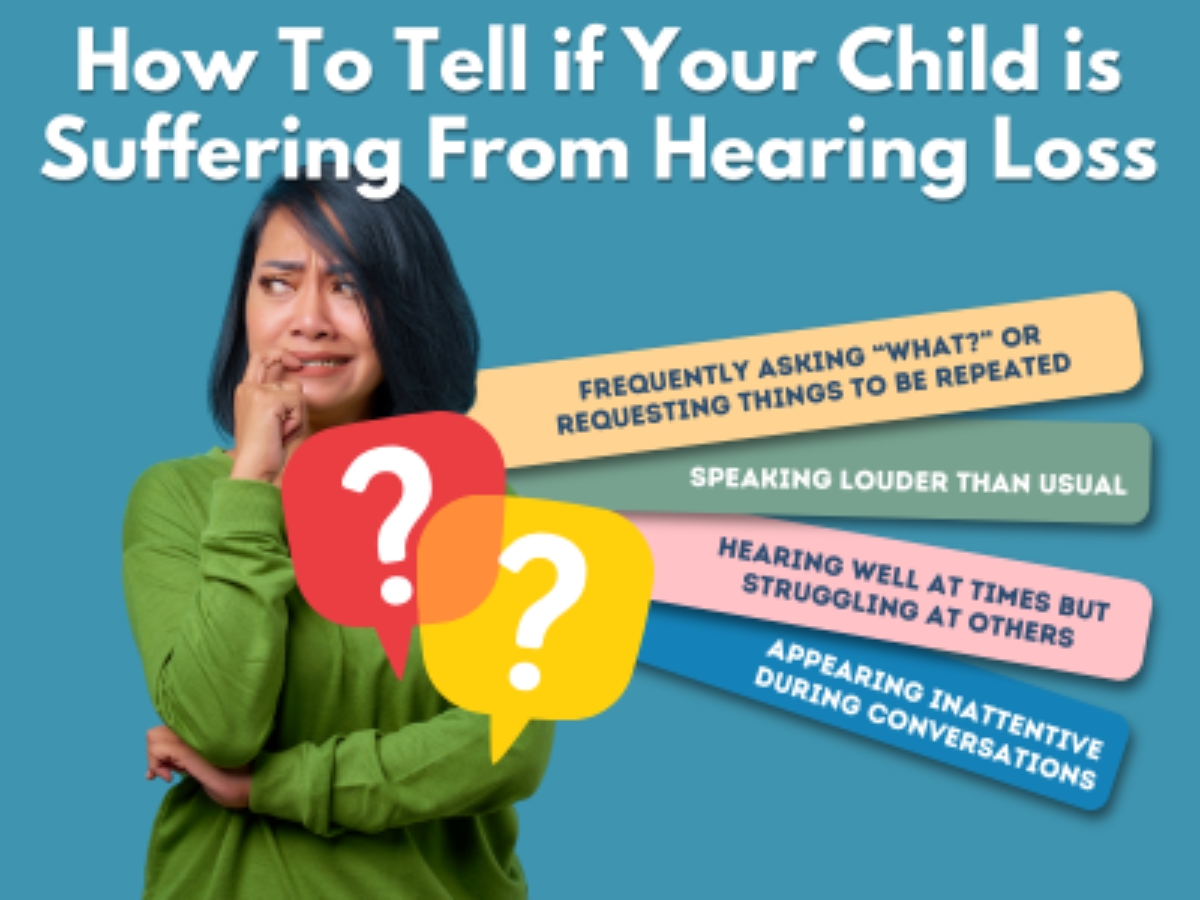The prospect of your child experiencing hearing loss can be concerning, but understanding the issue and being proactive can make a significant difference. According to the CDC, around 0.17% of infants and 0.5% of children aged three to 17 face some form of hearing loss. The good news is that early intervention can lead to successful outcomes. By learning to recognize the signs of hearing loss in children, you can help ensure your child receives the support they need.
Understanding the Causes of Childhood Hearing Loss. Hearing loss can either be a congenital condition or arise from various factors throughout your child’s life. In about half of the cases, no specific cause is identified, which highlights the importance of being aware of potential risk factors.
Here are some common contributors to hearing loss:
- Birth defects associated with premature birth
- A family history of childhood hearing loss
- Ear infections
- Complications at birth
- Use of ototoxic medications during pregnancy
- Newborn jaundice that requires a blood transfusion
- Infections such as meningitis or cytomegalovirus
- Conditions like otosclerosis or Meniere’s disease
- Trauma to the eardrum
- Exposure to secondhand smoke
- Exposure to loud noises
Being informed about these possible causes can empower you to work closely with your child’s healthcare provider to monitor their hearing health.
Recognizing the Signs of Hearing Loss in Children. Identifying potential hearing difficulties in your child is crucial for effective intervention. While some signs may seem obvious, they can be easy to overlook.
Here are key indicators to watch for:
- Frequently asking “what?” or requesting things to be repeated
- Hearing well at times but struggling at others
- Increasing the volume on the television or devices more than others in the household
- Preferring one ear for better hearing
- Discussing a “good ear”
- Receiving feedback from teachers about difficulty in class participation
- Appearing inattentive during conversations
- Speaking louder than usual
- Demonstrating intense focus when listening
- Not meeting speech and hearing developmental milestones
While some of these behaviors can be attributed to other factors, it’s always better to take a cautious approach. If you notice any of these signs or have a gut feeling that your child may be struggling with their hearing, don't hesitate to reach out for assistance.
For infants, hospitals typically conduct hearing tests within the first 24 to 48 hours after birth. Your child's doctor may also perform hearing screenings during annual checkups. Staying aware of the signs listed above can help you stay proactive about your child's hearing health.
For infants, observe if your child seems unresponsive to voices or noises. Typically, babies respond to a parent’s voice with smiles or coos. If your baby consistently ignores loud or startling sounds, it may be worth investigating further.
Taking Action if You Notice Signs of Hearing Loss. If you see any signs of hearing loss in your child or have concerns about their hearing, consult their doctor. Your pediatrician can provide an initial evaluation to assess if hearing loss might be an issue. If indicated, they will refer you to a specialist for a more comprehensive assessment.
An Audiologist or Hearing Instrument Specialist can offer precise testing and evaluation. For infants, this may involve watching subtle behavioral responses to sounds, while older children can verbally or physically indicate when they hear something.
Exploring Hearing Loss Treatments. If your child is diagnosed with hearing loss, there are a variety of effective treatment options available today. Modern advancements mean that children can lead fulfilling lives, even with hearing loss, if it is properly addressed.
The most common treatment is the use of hearing aids. These devices have become highly sophisticated, often isolating speech in practice, and many have low-profile designs that appeal to children with fun and colorful styles.
Hearing implants are another avenue for treatment. Cochlear implants, which directly stimulate the auditory nerve, are generally recommended for severe cases where hearing aids might not suffice. Bone-anchored hearing systems are effective for specific types of hearing loss, such as single-sided deafness or structural ear issues.
In some cases, speech therapy may also be beneficial alongside hearing devices to help address any speech delays resulting from hearing loss. While the notion of hearing loss can be unsettling, the advances in treatment options continue to enhance the quality of life for children, empowering them to thrive.
